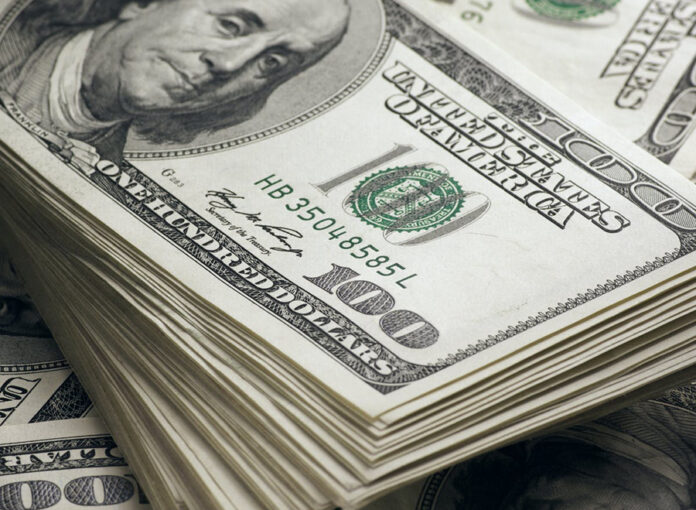The Nigerian forex market is segmented with multiple exchange rates practice. The most important rate being the Investors and Exporters window (IEFX).
Managing Director, Financial Derivatives Company (FDC) Limited, Bismarck Rewane said no less than 55 to 60 per cent of Nigerian forex transactions are traded at this window.
The FDC Monthly Economic report for December, he said the Central Bank of Nigeria (CBN) and most exporters and investors use this window which serves as not only a source of price discovery but also a barometer for measuring potential and actual apex bank’s intervention in the market.
Rewane listed some of the exchange rate determinants are balance of payments, capital inflows and trade balance.
“Currency volatility persisted at the foreign exchange rate market. In the period under review, the naira appreciated 0.26 per cent to N566.5/$, at the parallel market, from N568/$ at the beginning of the month. This is attributable to a 199 per cent increase in forex supply as the CBN increased its intervention at the foreign exchange market,” he said.
He explained that at the I&E window, the naira traded between the band of N413.28/$ to N415.1/$. The average turnover declined significantly by 26.43 per cent to N153.98 million in November from N209.29 million recorded in October.
“We expect the CBN to continue. Travel restrictions could weigh on oil prices given OPEC+’s decision to continue with their plans to expand output by 400,000bpd. This could weigh on oil prices and Nigeria’s forex receipts, limiting the CBN’s capacity to continue with its forex interventions at the foreign exchange market. The naira could depreciate at the parallel market as a result,” he said.
Sustained intervention at the I&E window will help ease forex pressures and lead to an appreciation of rates. This will reduce import costs and tame inflationary pressures.
The report said that the month of November saw the gross external reserves reverse its accretionary trend and maintain steady depletion throughout the month.
“The reserves lost 1.36 per cent to $41.22 billion from $41.79 billion on November 1. This is due to the Central Bank of Nigeria’s (CBN’s) efforts at defending the naira, supported by higher oil prices. In the review period, the country’s imports and payments cover fell to 10.12 months.
“The gross external reserves is expected to maintain its downward trend as the CBN intensifies efforts at defending the naira. Falling external reserves impedes the CBN’s ability to intervene at the foreign exchange market,” the report said.
Trading Desk Manager, AZA, Murega Mungai, said Nigeria was added to a growing list of African nations banned from entry into Canada as countries tighten travel restrictions because of the Omicron Covid-19 strain that was first identified in Southern Africa. “We expect the Naira to appreciate in the coming days as dollar demand eases at the start of the month,” he said.



